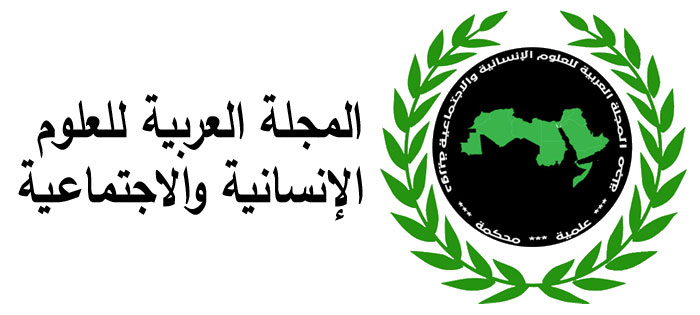
Charter of Ethics for Scientific Publicatio
The Arab Journal of Human and Social Sciences publishes through its publications original and refereed scientific research, with the aim of providing serious scientific knowledge by adhering to the principles of the Charter of Ethics for Scientific Publication and the prevention of erroneous practices. And confirmed by the Charter of Ethics within the Committee on Publication Ethics (COPE: Committee on Publication Ethics), which is the guiding basis for authors, researchers and other parties influential in publishing research. Thus, the magazine is fully committed to ensuring its implementation in light of accepting responsibility and fulfilling the duties and responsibilities assigned to each party by emphasizing the following points:
Copyright and quotation rights from previous scientific works must be taken into account, in order to preserve the rights of others when publishing research in journals.
Integrity: The editor-in-chief ensures that the content of each article submitted for publication is evaluated, regardless of gender, origin, religious belief, citizenship or political affiliation of the author.
Confidentiality: The information of research authors must be strictly confidential and maintained by all persons who have access to it, such as the editor-in-chief, members of the editorial board.
Explicit Consent: The research results of others relating to non-publishable papers may not be used or benefited from without the written permission or permission of its author.
Responsibility of the arbitrator (reviewer): Contribution to the publishing decision: The arbitrator (reviewer) assists the editor-in-chief and the editorial board in making the publishing decision as well as assisting the author in improving and correcting the research.
Speed of service and adherence to deadlines: The arbitrator must take the initiative and speed in carrying out the evaluation of the research directed to him within the specified deadlines, and if this is not possible after conducting the preliminary study of the research, he must inform the editor-in-chief that the subject of the research is outside the scope of the arbitrator’s work, delaying the arbitration due to lack of time or lack of sufficient capabilities for arbitration.
Confidentiality: All research information must be confidential to the arbitrator, and the arbitrator must seek to maintain its confidentiality and cannot disclose it or discuss its content with any party except those authorized by the editor-in-chief.
Objectivity: The arbitrator must prove his review and evaluation of the research directed to him with objective arguments and evidence, and to avoid arbitration on the basis of a statement of his personal point of view, personal taste, racial, doctrinal and others.
Determining the sources: The arbitrator must try to identify the sources and references related to the topic (the research), and any text or paragraph taken from other previously published works must be properly marginalized, and the arbitrator must inform the editor-in-chief and warn him of any similar, similar or overlapping works with the work under arbitration.
Conflict of interest: The arbitrator should not arbitrate research for personal purposes, that is, he must not accept the arbitration of research through which there can be interests of persons or institutions or in which personal relationships are observed.
The author must submit an original research and present it accurately and objectively, in a scientific and consistent manner that matches the specifications of the refereed research, whether in terms of language, form or content, in accordance with the standards and policy of publishing in journals.
Originality and piracy: The author must prove the originality of his work, and any quotation or use of paragraphs or words of others must be marginalized in an appropriate and correct manner. Republishing: The author cannot submit the same work (the research) to more than one journal or conference, and doing so is considered unethical and unacceptable behavior.
Access to and Retention of Data: The author must keep the private data he used in his research, and submit them upon request by the editorial board or the evaluator.
Reporting errors: If the author becomes aware and discovers that there is a fundamental error and inaccuracy in the details of his research at any time, he must immediately notify the editor-in-chief of the magazines or the publisher, and cooperate to correct the error.
Copyright and quotation rights from previous scientific works must be taken into account, in order to preserve the rights of others when publishing research in journals.
Integrity: The editor-in-chief ensures that the content of each article submitted for publication is evaluated, regardless of gender, origin, religious belief, citizenship or political affiliation of the author.
Confidentiality: The information of research authors must be strictly confidential and maintained by all persons who have access to it, such as the editor-in-chief, members of the editorial board.
Explicit Consent: The research results of others relating to non-publishable papers may not be used or benefited from without the written permission or permission of its author.
Responsibility of the arbitrator (reviewer): Contribution to the publishing decision: The arbitrator (reviewer) assists the editor-in-chief and the editorial board in making the publishing decision as well as assisting the author in improving and correcting the research.
Speed of service and adherence to deadlines: The arbitrator must take the initiative and speed in carrying out the evaluation of the research directed to him within the specified deadlines, and if this is not possible after conducting the preliminary study of the research, he must inform the editor-in-chief that the subject of the research is outside the scope of the arbitrator’s work, delaying the arbitration due to lack of time or lack of sufficient capabilities for arbitration.
Confidentiality: All research information must be confidential to the arbitrator, and the arbitrator must seek to maintain its confidentiality and cannot disclose it or discuss its content with any party except those authorized by the editor-in-chief.
Objectivity: The arbitrator must prove his review and evaluation of the research directed to him with objective arguments and evidence, and to avoid arbitration on the basis of a statement of his personal point of view, personal taste, racial, doctrinal and others.
Determining the sources: The arbitrator must try to identify the sources and references related to the topic (the research), and any text or paragraph taken from other previously published works must be properly marginalized, and the arbitrator must inform the editor-in-chief and warn him of any similar, similar or overlapping works with the work under arbitration.
Conflict of interest: The arbitrator should not arbitrate research for personal purposes, that is, he must not accept the arbitration of research through which there can be interests of persons or institutions or in which personal relationships are observed.
The author must submit an original research and present it accurately and objectively, in a scientific and consistent manner that matches the specifications of the refereed research, whether in terms of language, form or content, in accordance with the standards and policy of publishing in journals.
Originality and piracy: The author must prove the originality of his work, and any quotation or use of paragraphs or words of others must be marginalized in an appropriate and correct manner. Republishing: The author cannot submit the same work (the research) to more than one journal or conference, and doing so is considered unethical and unacceptable behavior.
Access to and Retention of Data: The author must keep the private data he used in his research, and submit them upon request by the editorial board or the evaluator.
Reporting errors: If the author becomes aware and discovers that there is a fundamental error and inaccuracy in the details of his research at any time, he must immediately notify the editor-in-chief of the magazines or the publisher, and cooperate to correct the error.
